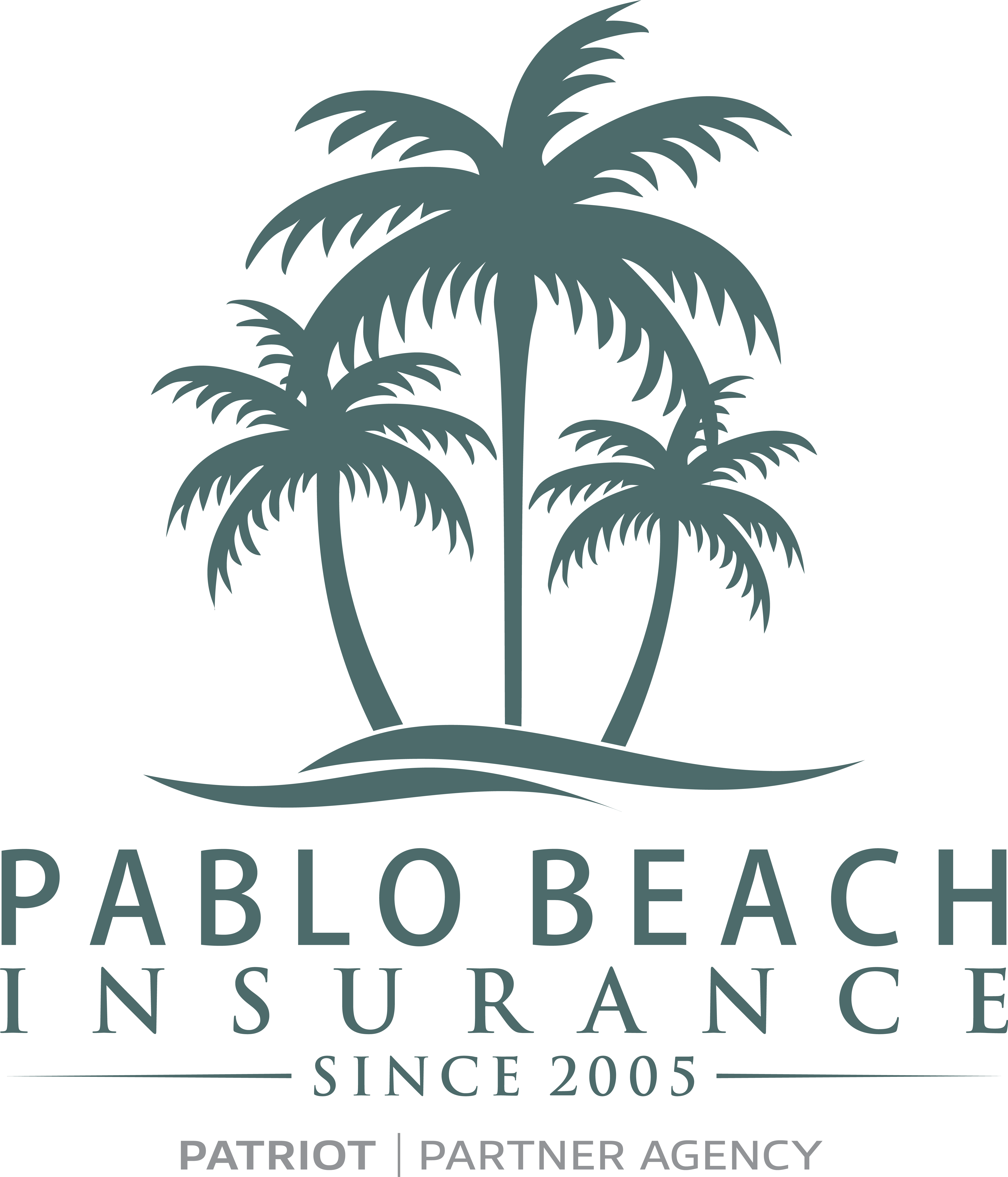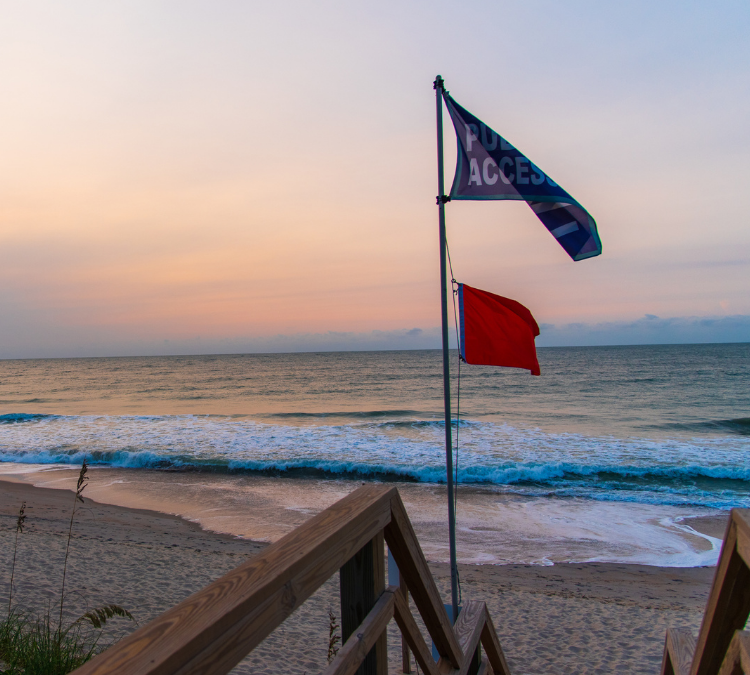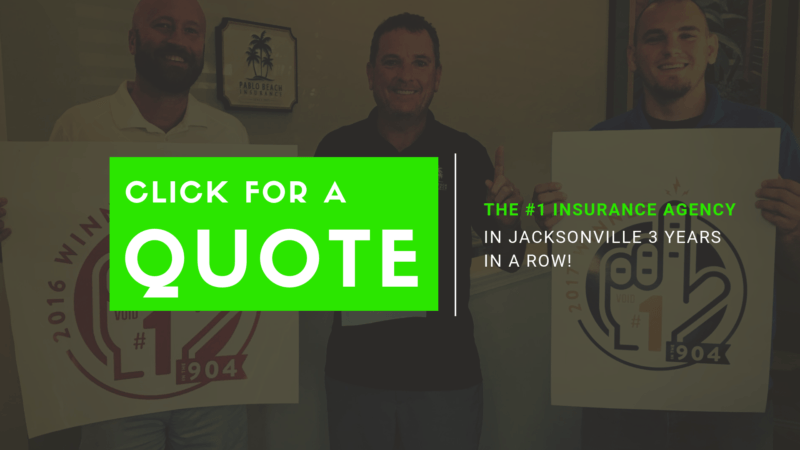HURRICANE PREPAREDNESS
DISASTER. It strikes anytime, anywhere. It takes many forms — a hurricane, an earthquake, a tornado, a flood, a fire or a hazardous spill, some are natural, some are man-made. It builds over days or weeks, or hits suddenly, without warning. Every year, millions of Americans face disaster, and its terrifying consequences.
The following guide is prepared for Florida Residents by Pablo Beach Insurance Group.
HURRICANE INSURANCE
While it sounds like a good policy to have, there is no specific policy known as “hurricane insurance”.
Damages resulting from a hurricane are typically covered under your standard insurance policy with specific exclusions listed. This is true for standard homeowners, renters, and business insurance policies.
The best time to get a policy is as soon as possible. Once a storm warning has been issued, insurers no longer bind coverage. If you wait till a storm is approaching to try and get insurance, then it will be too late. Some polices, like Flood Insurance take 30 days to go into effect. So, the time is NOW to get or review insurance to cover you during storm season.
Let’s look at some specific situations, and insurance options available to you.
HOMEOWNERS INSURANCE
As a homeowner, we hope and assume that you have a standard homeowners insurance policy in place – if not contact us.
Most homeowners insurance policies offer a broad range of protections for damages caused by hurricanes, however you may find certain coverage exclusions.
Damage from flooding is one example of a peril completely excluded on standard homeowners policies.
Your hurricane deductible may also vary slightly from the typical deductible you’re used to. Be sure to check on what specific coverage you have with your current policy.
BONUS
Click here for a further explanation regarding hurricane deductibles.
RENTERS INSURANCE
If you’re currently renting, the building you live in is likely covered by your landlord’s insurance policy. However, your landlord’s insurance won’t cover your possessions when a storm strikes. It is up to you to purchase adequate protection for the items in your home.
Keep in mind that, just like a homeowners policy, a standard renters policy excludes coverage for damage from flooding. For this type of coverage, you will need to get a separate policy through the National Flood Insurance Program.
“Forbes magazine found that only 2% of all renters living in flood planes have flood insurance, while about 20% of homeowners have the protection.”
BONUS
Read our article, “It Is Important for Renters to Have Flood Insurance Too”
FLOOD & WIND
Flood Damage
With any major storm, especially hurricanes, excessive rain and powerful storm surges (like we saw in Jacksonville last year due to Hurricane Irma) – making flooding pretty common. And let’s face it, if you live in Florida, then you are almost certainly in a flood plane.
You now have options when it comes to Flood Insurance policies. You can obtain stand-alone coverage through the National Flood Insurance program or private programs like the one offered by Tower Hill Insurance. Click here to read more about your options.
Keep in mind that flood insurance takes 30 days to go into effect. This means a policy purchased today won’t provide coverage for any events in the next 30 days. So, as we mentioned before, these policies must be purchased in advance.
Wind Damage
Depending on the area you live in, you may need to purchase wind damage protection in addition to your homeowners or renters insurance policy.
While some homeowners policies do cover damage by wind, this coverage may be excluded from your policy if you live in a high-risk area like along the Florida Coast. Double-check your policy to see if this type of damage is covered or excluded.
BUSINESS OWNERS INSURANCE
Coverage for commercial claims from hurricane losses can vary widely depending on the policy you have.
Your business insurance policy can help cover some damage by a hurricane, like repairing or replacing physical property, but it does have limitations. Like personal insurance policies, flood is not included in a standard commercial insurance policy.
If you are unsure what coverage you have under your commercial insurance policy, contact us and we will happily go over the details of your policy with you.
What About Home-Based Businesses?
If you run your business out of your home, don’t expect your homeowners or renters policy to cover all of your damages. Homeowner’s policies may not explicitly cover your business assets. Again, contact us to discuss what it or isn’t covered, if you have any doubts.
PREPAREDNESS: BEFORE, DURING AND AFTER THE STORM
1. During the Season
- Keep your vehicle gas tank more than 1⁄2 full through the season.
- Test run generators to insure proper working order.
- Consider the purchase of flood insurance, even if outside of a floodplain.
- Have plenty cash on hand.
- Maintain portable battery-powered AM radio.
2. Home Preparedness
- Board up your windows or close storm shutters.
- Trim the trees and shrubs around your home.
- Clear loose and clogged downspouts and rain gutters.
- Take a detailed inventory, photos and videos of your home and assets (internal and external) and store in safe place.
- Secure or remove all items outside your home (grill, hanging plants, potted plants, etc.).
- Store all important documents (insurance papers, birth certificates, titles, deeds, etc) in a waterproof container and in a secure location.
- Prepare your evacuation kit using the pertinent items in the attached Emergency Essentials Kit checklist.
- Turn off propane tanks.
- Fill the bathtub and other large containers with water for sanitary purposes (cleaning, flushing toilets, etc.)
3. During the Storm
- Turn the refrigerator and freezer to coldest setting and keep its doors closed.
- Keep phones and other portable devices charged until power loss.
- Stay indoors during the storm and away from windows and glass doors.
4. After the Storm
- Review and understand the rules with regard to returning to your area, especially beach and coastal locations.
- Return only after the all clear is given for your area.
- Do not venture on to roads until you have been advised they are passable and safe.
- Carefully inspect your home and perform an exterior assessment for safety issues.
- Be on the lookout for downed power lines and avoid if identified. • If any safety issues are present, do not enter your home.
Perform a damage assessment
- Have a fire extinguisher readily available.
- Watch for safety hazards (loose boards, slippery floors, broken glass, etc.)
- Carefully check for damage to the roof, foundation, and chimney.
- Use a battery-powered flashlight to inspect the structure. Do not use oil or gas lanterns or candles inside the structure.
- Do not use electrical appliances that have been wet/damaged until checked by a professional.
- Check with local authorities or have well water tested before using any water (could be contaminated).
- Until cleared with authorities or tested, all water should be boiled for 1 minute at a rolling boil to disinfect before drinking. – If any damage is identified to your home, contact your agent to start a claim.
- Photograph and document any damage.
EMERGENCY ESSENTIALS CHECKLIST
Water
- 1 gallon of drinking water per person per day (enough for 5 days)
Food
- 7-day supply of non-perishable food that doesn’t need cooking
- Can opener
- Plastic plates, cups, utensils
First Aid
- First aid kit
- Backup prescriptions for essential medications
Personal Hygiene
- Hand sanitizer or disinfectant wipes
- Toilet paper, paper towels, garbage bags
- Dental care
- Soaps and other hygiene supplies
- Change of clothes, pair of shoes and blanket per person
Clean Air Items
- Nose and mouth protection masks
- Plastic sheeting
- Duct tape
Miscellaneous
- Pet items
- Baby needs
- Travel info such as maps, basic vehicle repair, etc
- Cell phones fully charged and portable chargers
- Basic toolset
FAMILY EVACUATION AND COMMUNICATION PLAN
Make sure your family has a plan in case of an emergency. Before an emergency happens, sit down together and decide how you will get in contact with each other, where you will go and what you will do in an emergency. This checklist will give you a good idea of where to start and know what information each family member should be aware of prior to an emergency.
Ensure you and each family member knows the following:
- Out-of-town Contact Name and Contact Information. •Neighborhood Meeting Place.
- Regional Meeting Place.
- Evacuation Location.
- Each Family Member’s name, date of birth, social security number and important medical information.
- Where each family member spends the most time (work, school, etc.).
- Information on family doctor(s), general practitioners, pharmacists, medical insurance, homeowners/rental insurance, and veterinarian/kennel (for pets).
- Each family member knows to dial 911 for emergencies.
Request a Copy of this Guide
If you would like a .pdf copy of our 2020 Hurricane Preparedness Guide please contact us. We would be happy to provide you with a copy.
Florida Insurance Experts
For almost 15 years, PBIG has been helping Florida residents by getting them the right coverage at the right price. We are locally owned, have a casual approach, and deliver professional results. Click below to get a no-hassle, free quote from one of our experts.


